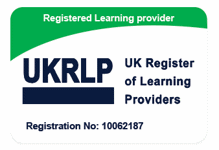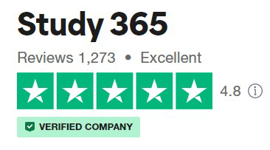- Exam(s) / assessment(s) is included in price

Social Psychology Course
5 FREE Courses | 6 FREE PDF Certificates | CPD & IAP Accredited | Lifetime Access | No Hidden Fee
Study365
Summary
Overview
Certificate in Social Psychology
**Complimentary Course Bundle - 5 Courses Absolutely FREE**
- Course 1 : Introduction to Psychology - Level 3
- Course 2 : The Psychology of Partner Compatibility - Level 3
- Course 3 : Child Psychology Essentials
- Course 4 : Psychology Diploma in Education & Training
- Course 5 : Psychology & Personality Study Diploma
Gain a full understanding of the theories behind social psychology, a subject focusing on how individuals impact and are impacted by others around them. Gain a better understanding of human behaviour and how this affects people, and study applied social psychology. This course will allow learners to pursue a career within social psychology and gain research, analytical, communication, critical thinking, time management, and abstract reasoning skills.
Learning with Study 365 has many advantages. The course material is delivered straight to you and can be adapted to fit in with your lifestyle. It is created by experts within the industry, meaning you are receiving accurate information, which is up-to-date and easy to understand.
This course is comprised of professionally narrated e-Learning modules, interactive quizzes, tests, and exams. All delivered through a system that you will have unlimited access to 24 hours a day, 7 days a week.
* Free E-certificate (No additional cost for E-certificates)
Why You Should Choose Study 365
- Lifetime Access to your course.
- The price shown on Reed is for the whole course, including the final exam and free e-certificate.
- CPD and iAP accredited certificate upon successful completion
- Tutor Support available Monday – Friday
CPD
Course media
Description
This online training course is comprehensive and designed to cover the key topics listed under the curriculum.
COURSE CURRICULUM
[Module 01] Fundamentals of Social Psychology
- What Is Social Psychology?
- Social Psychology & Other Fields
- Careers in Social Psychology
- Social Psychology Perspectives
- Social Cognition
- Sociocultural Perspective
- Social Learning
- Evolutionary Perspective
- Attraction & Close Relationships
- Prosocial Behaviour
- Stereotypes, Prejudice, & Discrimination
- Study of Leadership Types
- Impact on Psychology
- Solomon ASCH
- Conformity Study
- Informative Vs. Normative Conformity
- Impact on Psychology
- Albert Bandura
- BOBO Doll Study
- Social Learning Theory
- Impact on Psychology
- The Blue Eyes/ Brown Eyes Exercise
- Impact on Psychology
[Module 02] Exploring Research Methods and Ethics
- Introduction
- Cross-Sectional Vs. Longitudinal Design
- Case Studies
- Field Studies
- Survey Studies
- Experiment
- Quasi- Experiment
- Independent and Dependent Variables
- Experimental vs. Control Groups
- Random Assignment
- Samples
- Why Ethnography?
- Ethnographies
- Ethnography Procedure
- Assessing Ethnography
- Ethical Considerations of Ethnographies
- Ethnography Practice
- Research in the Social Sciences
- Quantitative Research
- Qualitative Research
- Reliability
- Validity
- The Purpose of Correlations
- Interpreting the Statistic: Direction
- Interpreting the Statistic: The Number
- Cautions with Correlations
- Inferential Statistics
- Two Types of Inferential Statistics
- Values
- Before the Study
- During the Study
- After the Study
[Module 03] Studying Social Cognition & Perception
- Introduction
- Schemata
- Types of Schemata
- Importance of Schemata
- Accessibility
- Priming
- Perceptual Salience
- Self – Fulfilling Prophecies
- The Pygmalion Effect
- Cognitive Error
- Heuristics
- Availability Heuristic
- Representativeness Heuristic
- Base – Rate Heuristic
- Thinking
- Low Effort Thinking
- High Effort Thinking
- Counterfactual Thinking
- Thought Suppression
- The Rebound Effect
- Covariation Model of Attribution
- Types of Information
- Internal Vs. External Attributions
- Attributional Patterns
- Individualistic Cultures
- Collectivistic Cultures
[Module 04] Identifying the Self in a Social Context
- The Self
- The Executive Function
- The Organizational Function
- Gender & Culture & The Self
- Introspection
- Self -Awareness Theory
- Effects
- Self-Perception Theory
- When Do We Use Self-Perception Theory
- Types of Motivation
- Facial Expressions & Emotions
- The Over Justification Effect
- Counter Attitudinal Advocacy
- Two Factor Theory of Emotions
- Schachter’s Experiment
- Misattribution of Arousal
- Social Comparison Theory
- Upward & Downward Comparisons
- Social Comparison Bias Impression Management
- Ingratiation
- Self- Handicapping
- Self-Monitoring
- Cognitive Dissonance
- Post -Decision Dissonance
- Insufficient Punishment
- Attributions
- Correspondence Bias
- Factor Observer Difference
- Effort Justification
- Aronson & Mills Study
- Real - World Application
- Internal & External Attributions
- Using Attributions
- Self-Serving Bias
[Module 05] Understanding Attitudes and Persuasion
- Attitudes and the ABC Model
- Affective Component
- Behavioural Component
- Cognitive Component
- Attitudes: Explicit Vs Implicit
- Measuring Explicit Attitudes
- Measuring Implicit Attitudes
- Social Psychology
- Social Cognition & Perception
- The Self in a Social Context
- Attitudes & Persuasion
- Group Decisions
- Attraction and Close Relationships
- Social Behaviour
- Stereotypes, Prejudice & Discrimination
- Fear Appeal
- Low Balling
- Foot-In-The Door
- Door- In-The Face
- Scarcity
- Subliminal Messages
- Real World Evidence
- Laboratory Evidence
- Attitude Inoculation
- Theory of Planned Behaviour
- Perceived Control
[Module 06] What Are Group Decisions?
- Idiosyncrasy Credits
- Descriptive Norm
- Injunctive Norm
- Confederate
- Inflicted Insight
- Instrumental Leadership
- Expressive Leadership
- Authoritarian Decision-Making
- Democratic Decision-Making
- Laissez-Faire Decision-Making
- Groupthink
- Space Shuttle Challenger Disaster
- Social Group
- Social Loafing
- Social Facilitation
- Game Theory
[Module 07] Understanding Attraction & Close Relationships
- Stereotype
- Prejudice
- Discrimination
- Individual Discrimination
- Institutional Discrimination
- Scapegoat Theory
- Conflict Theory
- Authoritarian Personality
- Cultural Transmission Theory
- Social Identity Theory
- Sex
- Gender
- Intersexed
- Controlled Information Processing
- Transsexual
- Sexual Orientation
- Heterosexual
- Homosexual
- Bisexual
- Five Types of Sexism
- Outgroup
- Ingroup
- Outgroup Homogeneity
- Ingroup Homogeneity
- Stereotype Threat
- Automatic Information Processing
- Contact Hypothesis
- Realistic Conflict Theory
[Module 08] Discrimination, Stereotypes and Prejudice
- Mere Exposure Effect
- Propinquity Effect
- Similarity
- Reciprocal Liking
- Ingratiation
- 7 To 10 Ratio
- V- Shape Ratio
- Facial Symmetry
- Babyface Phenomenon
- The Halo Effect
- Sternberg’s Triangular Theory Of Love
- Non-Love
- Equity Theory
- Social Exchange Theory
- Cost Benefit Analysis
- Comparison Level
- Attachment Theory Of Love
- Secure Attachment Style
- Disengagement Strategies
- 35 Strategies
[Module 09] How to Apply Social Psychology?
- Altruism
- Kin Selection
- Reciprocity Norm
- Empathy-Altruism Hypothesis
- Altruistic Personality Type
- The Commons Dilemma
- The Power of Social Norms
- Inducing Hypocrisy
- Misinformation Effect
- Recovered Memories
- Deterrence Theory
- Perceived Control
- Learned Helplessness
- Self-Efficacy
- Locus of Control
- Social Support
Course Duration:
You will have Lifetime access to your online study platform from the date you purchased the course. The course is self-paced so you decide how fast or slow the training goes. You can complete the course in stages revisiting the training at any time.
Method of Assessment:
At the end of the course, learners will take an online multiple choice question assessment test. The online test is marked straight away, so you will know immediately if you have passed the course.
Certification:
Learners who successfully complete the exam will be awarded a Social Psychology certificate.
Why Choose Us?
- Our courses represent outstanding value for money
- High quality e-learning study materials and mock exams.
- Each course is designed by industry experts, using an innovative interactive learning approach.
- Includes step-by-step guided videos tutorials.
- 24/7 Access to the Online Learning Portal.
- Anytime & Anywhere Learning.
- Recognised Accredited Qualification.
- Access Course Content on Mobile, Tablet or Desktop.
- Study in a user friendly, advanced online learning platform.
- Excellent customer service and administrative support.
Who is this course for?
This course is suitable for:
- Job seekers
- School leavers
- Psychology students
- Anyone hoping to pursue a career in social psychology
Requirements
This course requires no formal prerequisites and this certification is open to everyone
Career path
This course will allow you to go on to further study, or will allow you to fulfil the following roles:
- Clinical Psychologist
- Counsellor
- Social Worker
- Forensic Psychologist
- Health Psychologist
- Occupational Psychologist
- Sports Psychologist
Questions and answers
I was wondering how we would write the exams, will it be online as well or will we have to go to a center in our town to write it.
Answer:Dear Kalea, Thank you for your query. At the end of the course, learners will take an online multiple choice question assessment test. The online test is marked straight away, so you will know immediately if you have passed the course. Regards, Student Support Team
This was helpful.IS THE COURSE AT A, LEVEL STANDARDS
Answer:Dear Angela, Thank you very much for your query. Kindly note this course is not equivalent to an A level standards. Successful candidates will be awarded a Social Psychology certificate which is a Recognised Accredited Qualification. The offer ends this Friday, so hurry up and get the discount as you will receive 24/7 access for 365 days. Regards, Student Support Team.
This was helpful.Do you have multiple opportunities to complete end assessment to obtain the grading you wish or is it one time only attempt?
Answer:Dear Jane, Yes. You will have three attempt to your final exams and one chance for your final exams.Learners who successfully complete the exam will be awarded a Social Psychology certificate. Best Regards, Student Support Team.
This was helpful.
Reviews
Legal information
This course is advertised on reed.co.uk by the Course Provider, whose terms and conditions apply. Purchases are made directly from the Course Provider, and as such, content and materials are supplied by the Course Provider directly. Reed is acting as agent and not reseller in relation to this course. Reed's only responsibility is to facilitate your payment for the course. It is your responsibility to review and agree to the Course Provider's terms and conditions and satisfy yourself as to the suitability of the course you intend to purchase. Reed will not have any responsibility for the content of the course and/or associated materials.
FAQs
Interest free credit agreements provided by Zopa Bank Limited trading as DivideBuy are not regulated by the Financial Conduct Authority and do not fall under the jurisdiction of the Financial Ombudsman Service. Zopa Bank Limited trading as DivideBuy is authorised by the Prudential Regulation Authority and regulated by the Financial Conduct Authority and the Prudential Regulation Authority, and entered on the Financial Services Register (800542). Zopa Bank Limited (10627575) is incorporated in England & Wales and has its registered office at: 1st Floor, Cottons Centre, Tooley Street, London, SE1 2QG. VAT Number 281765280. DivideBuy's trading address is First Floor, Brunswick Court, Brunswick Street, Newcastle-under-Lyme, ST5 1HH. © Zopa Bank Limited 2024. All rights reserved.





